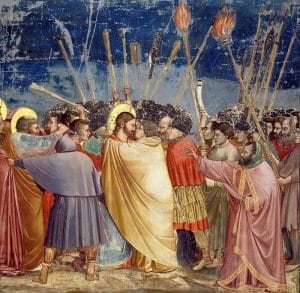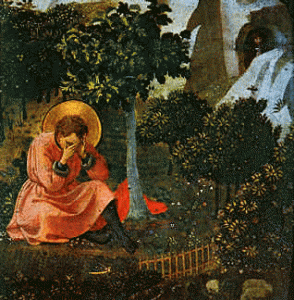Before he died, St. Ignatius, yielding to pressure from his assistant and secretary Fr. Luis Gonzalez de Camara, dictated a spiritual biography. The future saint knew just how important it was to study the lives of the saints, especially because God had brought him to conversion through his exposure to different hagiographies. At one pivotal point Ignatius, led by the grace of God, began to “think and reason to himself. ‘Suppose that I should do what St. Francis did, what St. Dominic did?’ He thus let his thoughts run over many things that seemed good to him, always putting before himself things that were difficult and important which seemed to him easy to accomplish when he proposed them. But all his thought was to tell himself ‘St. Dominic did this, therefore, I must do it. St. Francis did this, therefore, I must do it.’” In this way, St. Ignatius could be the Patron Saint of studying the lives of the saints.
In coming to read the lives of the saints, many of us seem to take a similar approach to Ignatius. We are moved by their exploits and try to model our spiritual lives after theirs. We think St. Dominic preached the Rosary, therefore I must preach the Rosary. St. Francis went to great lengths to tame “Brother Ass” (the epithet he gave his body), so I too must regularly fast by eating nothing several times a week. The problem with this, as Ignatius later hinted at, is that it has all the makings of a self-help trap in which we risk running out ahead of grace instead of cooperating with it.
The Importance of the Floating Pronouns
Ignatius understood the deeper meaning of the floating pronouns this and it when he was moved by the Holy Spirit to think “because Francis or Dominic did this, therefore I must do it.” The this is not the specific exploits. Ignatius was wholly incapable of doing those things because the great and holy things that Francis and Dominic did were done under the influence of grace. They were impossible no matter how determined Ignatius was. But moved by supernatural grace, they made the extraordinary seem ordinary and sanctity achievable. It becomes the key and by it Ignatius meant cooperating with grace. What made Francis and Dominic, and ultimately Ignatius, saints was not what they did specifically, but their habit of never missing a single grace that God sent to them. They were, according to the Spiritual Exercises of St. Ignatius, inhabitants of the Third Class of Men who “seek only to will and not will as God Our Lord inspires them.” They didn’t just do good, but they did the good that God wanted.
To study the saints then we should understand that everything they did was because they were docile to grace. We ought to begin, not by being amazed at their exploits, but by being amazed at what grace can do to an ordinary person who desires to always cooperate with it. That is what we should seek to imitate first and foremost.
True Imitation of the Saints
The reason why this is important is because we are each given different graces. We are all commanded to fast and thus given the grace to carry out that commandment, but only some of us are given the grace to fast in the manner of Francis. It would be wrong for us to imitate Francis in that regard unless we have been told and equipped—”to will and not will as God Our Lord inspires us.” The first question we must ask is not what Francis would do, but whether God is asking it of us. Too often we get ideas to do something extraordinary that turn out to be of our own (or the Enemy’s) making. It is important to discern those graces because God will equip us to do the extraordinary, but unless we have the necessary sensitivity to grace we will miss it. We should be regularly asking for the grace of being faithful and docile to grace.

It is important to stress that this is not the only reason we should study the lives of the saints. It is simply what our initial approach should be aimed at. Armed with the realization of what grace can turn us into, we now ought to turn to their example personally. Each of the Saints is still, perhaps even more, alive and active in the Church today. Our eternal destiny is not just a “me and Jesus” twostep, but to be united to the Holy Trinity and the Saints. This is the Communion of Saints. We will know each of them personally. That friendship is based on mutual devotion. We study their lives because we cannot love who we don’t know. But when we do get to know them, we not only grow to love them, but also come to rely on them. They become devoted to us as well.
One of the things that most of the Saints did during their earthly sojourn was to develop relationships with the Saints who had gone before them. St. Thomas relied on St. Paul to explain to him the difficult parts of his letters. St. Gemma relied on St. Margaret Mary Alocoque to help her in her suffering with spinal meningitis and to teach her devotion to the Sacred Heart. Because St. Margaret Mary had received the unique grace of knowing and understanding the Sacred Heart of Jesus, she became a distributor of that grace when she entered into her eternal reward. St. Gemma knew this about St. Margaret Mary and so she knew to go to her when she wanted the grace of devotion to the Sacred Heart. This is why we must also come to treat the notion of patron saints as much more than a mere talisman and part and parcel with holy friendship. God gave each saint very specific graces in his lifetime so that he in turn could become a distributor of that grace from heaven. Please God that we too might take those special graces that He gives us and become His distributor from heaven.


















